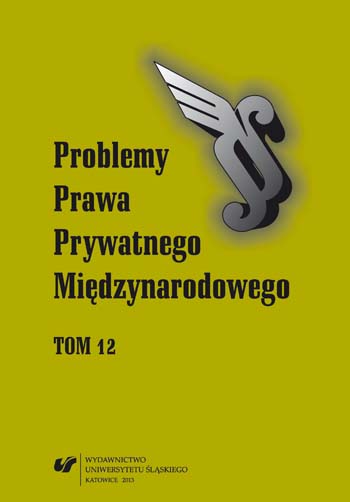Jurysdykcja trybunałów arbitrażowych w sporach inwestycyjnych a kwestia rozszerzenia zgody na arbitraż państwa przyjmującego w wyniku zastosowania...
Jurisdiction of arbitral tribunals in investment disputes and the issue of the applicability of the most favoured nation treatment to the host...
Author(s): Stanisław Sołtysik, Filip BalcerzakSubject(s): Law, Constitution, Jurisprudence
Published by: Wydawnictwo Uniwersytetu Śląskiego
Keywords: investment arbitration; investment treaties; BIT; dispute settlement mechanisms; Most Favoured Nation treatment; MFN clause; "Hochtief v. Argentina"; "Daimler v. Argentina"; jurisdiction; admissibility; consent to arbitrate
Summary/Abstract: The article focuses on the issue of application of the most favoured nation (MFN) treatment to the dispute settlement mechanisms included in investment treaties. The analysis is made in the light of two recent, contradictory decisions issued in "Hochtief v. Argentina" and "Daimler v. Argentina" cases. The article consists of two major parts. The first one starts with explaining the particular nature of the agreement to arbitrate present in investment arbitration based on international treaties. It then proceeds to describe the MFN treatment using the example of Article 3 of the Bilateral Investment Treaty (BIT) between Argentina — Germany, identifying its basic elements. Subsequently, the analysis turns to the issue of the application of the MFN clause to the dispute settlement mechanisms included in BITs. It focuses on decisions of the arbitral tribunals rendered up to date, which considered this issue. The authors then identify that the presence of third parties is a standard feature in investment arbitration (as the investors are not parties to the BITs which are concluded between states). Nevertheless the application of the MFN clauses to dispute settlement mechanisms results in an even more convoluted situation — the presence of “fourth” parties to the legal relation between the states — parties to the BITs (i.e. investors invoking the MFN clause in the underlying BIT to invoke the dispute resolution mechanism of another BIT). The second part of the article is a case study. It contains the analysis of the application of the MFN clause to the dispute settlement mechanisms at the example of the BIT Argentina — Germany (on which the contradictory decisions in "Hochtief v. Argentina" and "Daimler v. Argentina" were based). It focuses on the question whether the MFN clause included in art. 3 of the BIT Argentina — Germany can be invoked to avoid application of the eighteen months requirement included in art. 10 of that BIT. This part of the article starts with the distinction between jurisdiction and admissibility and its relevance in the context of investment arbitration. Then it turns to the analysis of the elements of the MFN clause at the chosen example: (i) treatment, (ii) in the territory of the host state, (iii) less favourable, (iv) than accorded to investments or investors from a third state, (v) in like circumstances. The conclusion is that there are arguments “for” and “against” the application of the MFN clause to dispute settlement mechanisms. Given the variety of BITs currently in force the final answer must be always based on the wording of particular provisions of the applicable BIT. The crucial point is whether the provision circumvented by resorting to the MFN clause is a condition to a host state’s consent, and thus an element of jurisdiction of the tribunal, or a procedural requirement, and thus an element of the admissibility of the claim. This, again, depends on the wording of the applicable investment treaty, as well
Journal: Problemy Prawa Prywatnego Międzynarodowego
- Issue Year: 2013
- Issue No: 12
- Page Range: 133-164
- Page Count: 32
- Language: Polish

